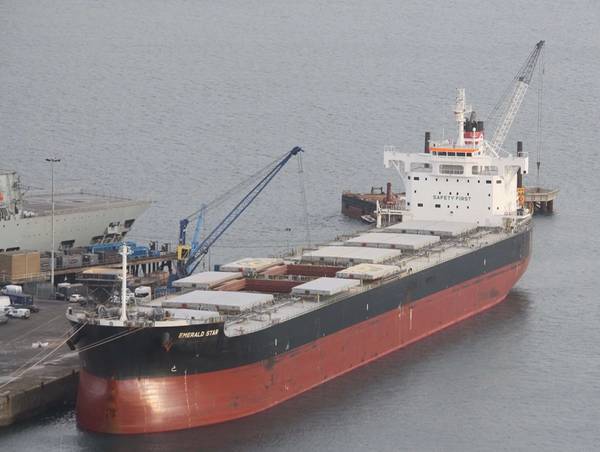
The Baltic Exchange's main sea freight index fell for a second straight session on Wednesday to its biggest one-day decline in nearly six months, as rates for capesize vessels fell after a strong run.
The Baltic index, which tracks rates for ships ferrying dry bulk commodities, fell 7%, or 151 points, to 2,014 points, its biggest one-day drop since January 31. The index has still more than tripled since February, mainly driven by strong demand for vessels that ship iron ore from Brazil into China.
"The recovery in the availability of ships should easily absorb the increase in Brazilian iron ore exports and put downward pressure on the Baltic index in the coming months," Caroline Bain, chief commodities economist at Capital Economics, said in a note. Brazilian miner Vale SA has been authorized to partially resume dry processing operations at its Vargem Grande complex, which should add 5 million tonnes to annual production.
Brazil's mining regulatory agency had ordered Vale to halt operations at Vargem Grande in February to guarantee the stability of its dams. "We think that the index will fall back as the iron ore trade normalises and the reality of slower global growth and weaker trade volumes kicks in," Bain added.
The capesize index slipped 507 points, or 11.8%, to 3,808 points, its worst one-day percentage fall since early May. Average daily earnings for capesizes, which typically transport 170,000 tonne-180,000 tonne cargoes such as iron ore and coal, declined $3,726 to $28,352.
The panamax index fell 10 points, or 0.5%, to 2,209 points. Average daily earnings for panamaxes, which usually carry coal or grain cargoes of about 60,000 tonnes to 70,000 tonnes, decreased $84 to $17,658.
The supramax index was 2 points higher at 1,019 points.
Reporting by Eileen Soreng




